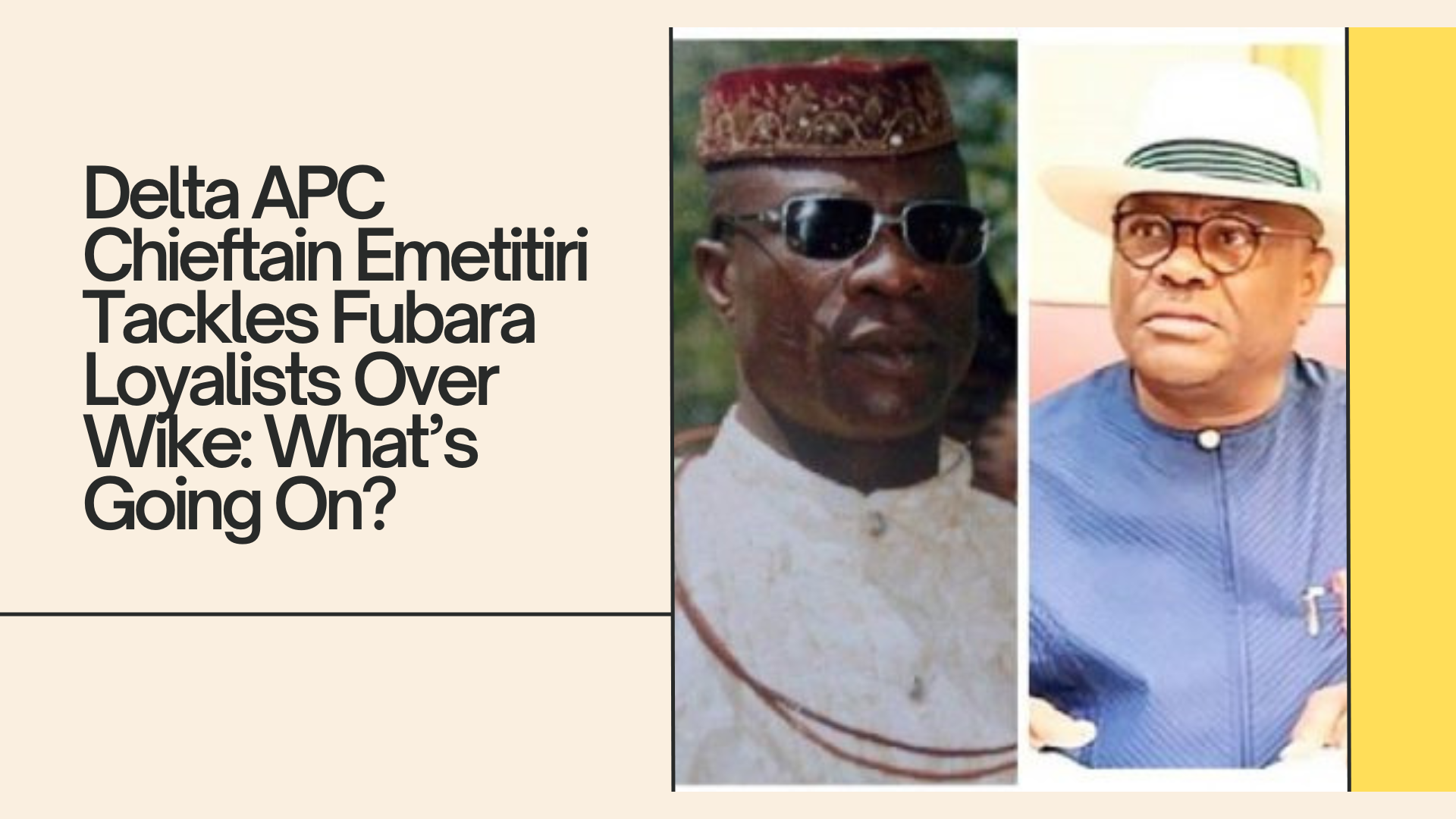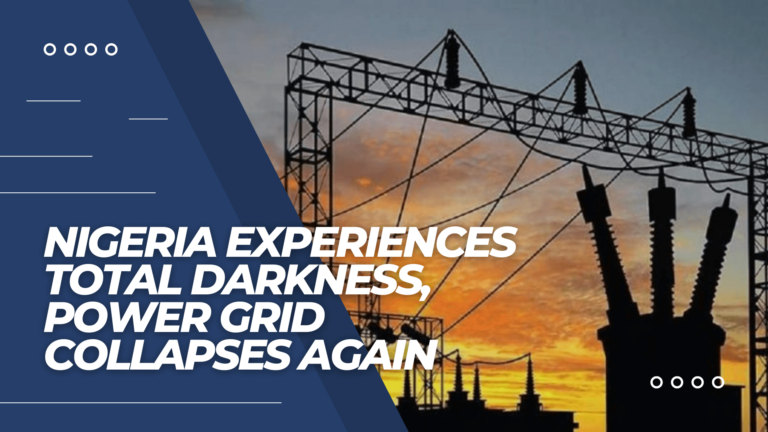When it comes to politics in Nigeria, you never know what twists and turns to expect. It’s a little like watching a soap opera, with alliances forming and breaking, and characters stepping in and out of the spotlight. Recently, one of those intriguing plots unfolded as Chief Isaac Emetitiri, a chieftain of the All Progressives Congress (APC) in Delta State, made headlines by calling out Governor Siminalayi Fubara’s loyalists. The reason? Nyesom Wike, the influential former governor of Rivers State. Grab your popcorn—let’s break this down, shall we?
Background: Setting the Scene
Before we jump into the nitty-gritty, let’s get to know the main players in this political drama.
Who is Chief Isaac Emetitiri?
Chief Isaac Emetitiri isn’t new to the political scene. He’s a prominent figure in the Delta State APC, known for his outspoken nature. Over the years, he has built a reputation for not shying away from a political clash, especially if it involves what he sees as the interests of his party and state. His words carry weight, and when he speaks, people pay attention—whether they agree with him or not.
Who is Governor Siminalayi Fubara?
Governor Siminalayi Fubara, the current governor of Rivers State, has been a loyalist of the People’s Democratic Party (PDP) for a long time. He was elected as governor after Nyesom Wike, who remains a strong political figure in the state. Fubara is considered a protégé of Wike, and their political alliance has been a defining aspect of his administration so far.
What’s Nyesom Wike Got to Do With It?
Ah, Wike. Love him or hate him, you can’t ignore him. He’s a political heavyweight with a knack for stirring the pot. Even though he’s no longer governor, his influence looms large, and his actions still make ripples across the political landscape. He’s been known for his bold statements, power plays, and sometimes controversial decisions that have kept him in the spotlight, even after stepping down.
Now that we have the backstory, let’s dive into what’s heating up this time around.
The Key Issue: Emetitiri vs. Fubara Loyalists
So, What Did Chief Emetitiri Say?
Chief Emetitiri recently made some bold remarks that got tongues wagging. He accused Governor Fubara’s loyalists of being overly dependent on the influence of Nyesom Wike. To put it plainly, Emetitiri thinks Fubara and his team are too tied to Wike’s apron strings and aren’t showing enough independent leadership. He argued that this over-reliance could hurt Rivers State’s progress, and by extension, the region’s development.
You can see why this would ruffle some feathers, right? Calling out Fubara’s team is essentially questioning the entire political structure they’re trying to build. Emetitiri’s comments didn’t sit well with Fubara loyalists, who came out swinging to defend their position.
What Are Fubara Loyalists Saying?
Not surprisingly, Fubara’s supporters were quick to push back. They argue that Emetitiri is overstepping, meddling in Rivers State’s politics when he should be focusing on Delta State. They see his comments as an attempt to create division and weaken the unity that Fubara and Wike have tried to build. For them, Wike’s influence isn’t a liability—it’s an asset. After all, his political experience and connections are part of what helped Fubara secure his position in the first place.
It’s a classic case of “if it ain’t broke, don’t fix it.” But Emetitiri isn’t buying it.
Why Is This Conflict So Important?
The Emetitiri Angle: Why Speak Up Now?
To understand Emetitiri’s stance, you have to read between the lines. His comments suggest a concern over power dynamics—not just in Rivers State but across the South-South region. By highlighting Fubara’s alleged over-reliance on Wike, he’s essentially warning against the risks of concentrating power in the hands of a few.
For Emetitiri, it’s about ensuring that leaders, especially governors, make decisions independently and in the best interests of their states, rather than acting as proxies for more powerful figures. His stance might also be a strategic move to position the APC as a strong alternative to the PDP’s influence in the region.
The Wike Factor: A Political Powerhouse
Let’s not beat around the bush—Wike is a force to be reckoned with. His tenure as governor was marked by significant infrastructure projects, bold political moves, and a penchant for making headlines. While his supporters see him as a leader who gets things done, his critics argue that he sometimes uses his power to control and dominate the political landscape. Emetitiri’s criticism taps into this perception, suggesting that Fubara’s leadership will never truly flourish if Wike keeps pulling the strings.
Broader Implications: What Does This Mean for Delta and Rivers State Politics?
For the APC in Delta State
Emetitiri’s comments could signal a shift in how the APC is approaching its political strategy in the South-South. By critiquing the dynamics in Rivers State, Emetitiri is positioning the APC as a party that stands for political independence and state autonomy. It’s a move that could attract voters who are tired of the same political players calling the shots. But it’s a risky strategy—getting involved in the politics of another state can backfire if it’s seen as unnecessary interference.
For the PDP in Rivers State
On the other side, Fubara and his team are likely doubling down on their alliance with Wike. They see his experience and influence as key assets, especially with political contests coming up. However, Emetitiri’s comments have highlighted a potential weakness in their strategy—the perception that Fubara isn’t leading independently. If this narrative catches on, it could hurt their standing, not just in Rivers State, but across the South-South.
Regional Politics and the National Impact
This isn’t just a local issue—it reflects broader political trends in Nigeria. The APC and PDP are constantly vying for dominance, and every controversy, every comment, every political alliance matters. What happens in Delta and Rivers State could set the tone for political campaigns across the region, influencing voter sentiments leading up to national elections.
Public Reaction: What Are People Saying?
The Court of Public Opinion
The public has been divided on this one. Some see Emetitiri as a brave figure speaking out against a political monopoly, while others see him as stirring the pot for his own gain. Social media has been buzzing with debates, with hashtags supporting both sides trending in local circles. It’s clear that people are paying attention, and the stakes are higher than ever.
Media’s Role in Framing the Story
We can’t ignore how the media has played a part in shaping the narrative. Partisan outlets have, predictably, taken sides, either painting Emetitiri as a hero or a troublemaker. It’s a reminder of how important media perception is in politics—the way this story is told can sway public opinion and influence the political landscape.
Conclusion: Where Do We Go From Here?
So, what’s next in this ongoing saga? It’s hard to say for sure, but one thing is clear: this isn’t just about Emetitiri and Fubara. It’s about power, influence, and the future direction of politics in the South-South region. Both sides will need to tread carefully, as the next moves they make could either strengthen their positions or open up new vulnerabilities.
In the end, this is just another chapter in the ever-evolving world of Nigerian politics. It’s messy, unpredictable, and at times, downright dramatic. But that’s what keeps it interesting, right?
FAQs
- Who are the key figures involved in this conflict?
- Chief Isaac Emetitiri (APC), Governor Siminalayi Fubara (PDP), and Nyesom Wike (former governor, PDP).
- Why is Emetitiri critical of Fubara’s administration?
- He believes Fubara’s team is too dependent on Wike, which he argues could hinder independent leadership.
- How does this affect the political landscape in Delta and Rivers States?
- It could shift alliances, influence voter sentiments, and alter strategies for both APC and PDP in the region.
- What can be expected in the future regarding this issue?
- More political maneuvering, public debates, and possibly a shift in how both parties position themselves ahead of upcoming elections.
So, what’s your take on all this political drama? Feel free to share your thoughts!
🌐 Sources
thenationonlineng.net – Delta APC chieftain Emetitiri tackles Fubara, loyalists over Wike



